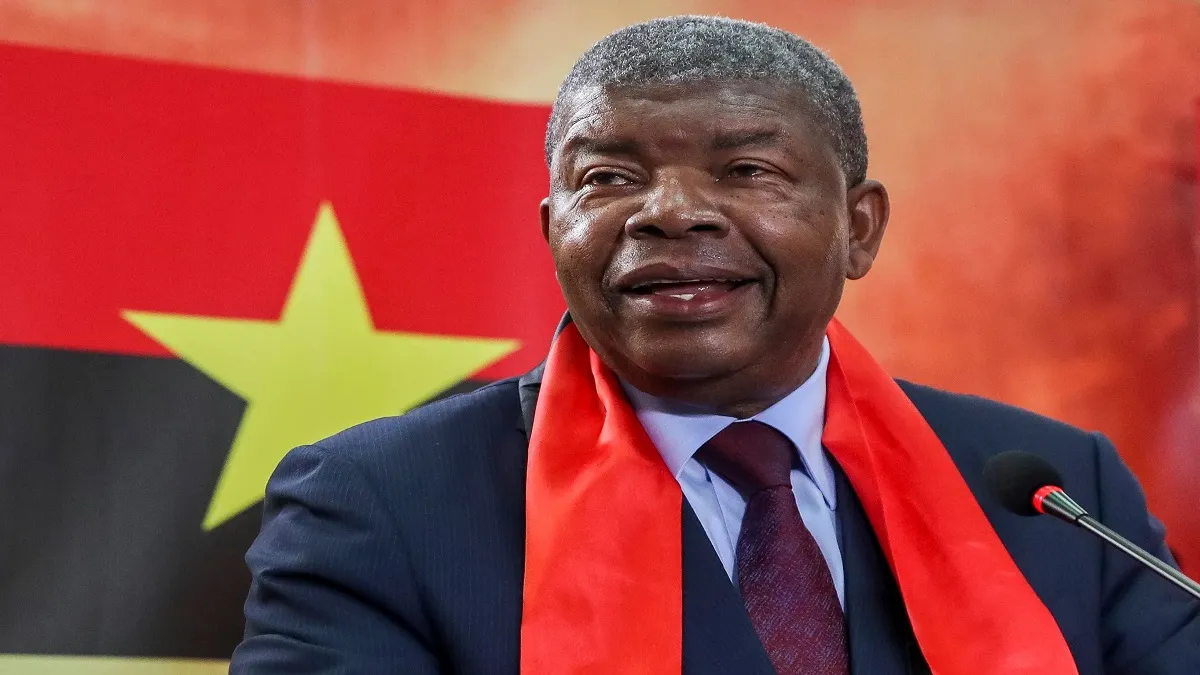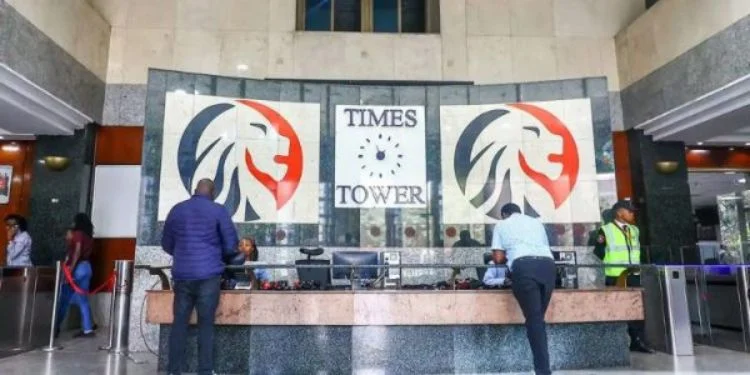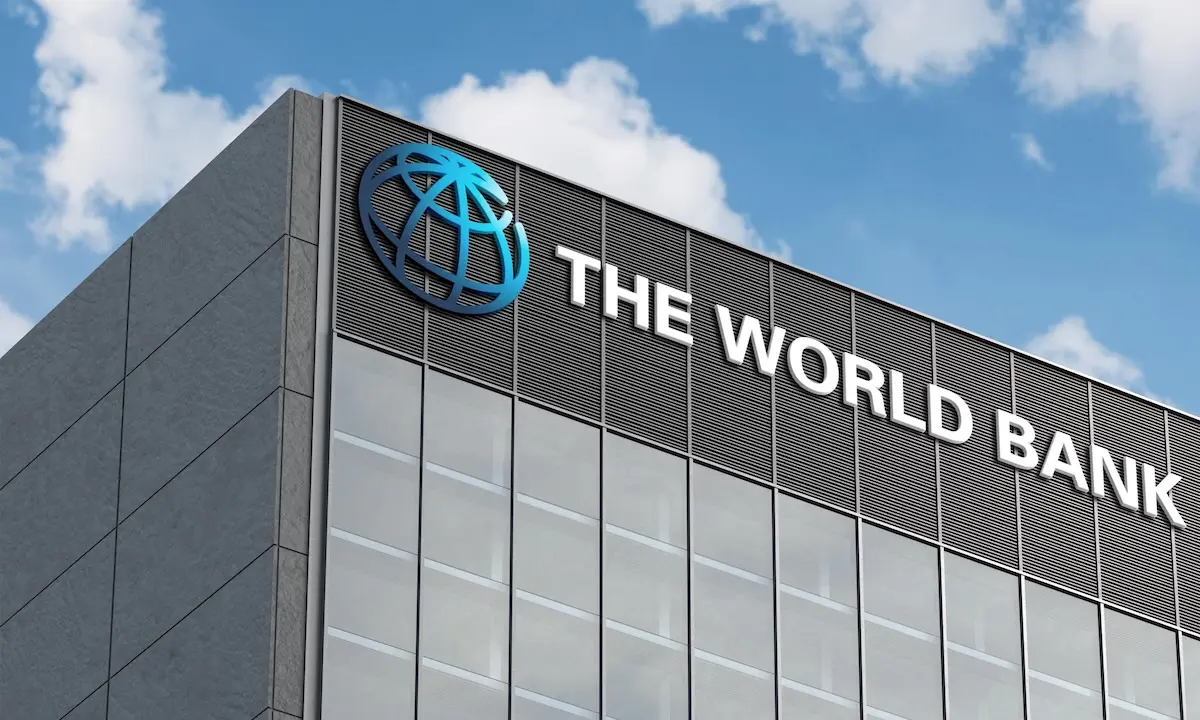In a significant stride towards fostering sustainable development and accelerating regional integration across Africa, the Africa Finance Corporation (AFC), the continent’s leading infrastructure solutions provider, today announced that the Republic of Angola has become its latest sovereign shareholder. This pivotal equity investment not only deepens an already robust partnership but also serves as a resounding testament to Angola’s unwavering confidence in AFC’s transformative mandate for the continent.
Since joining the AFC as a member nation in 2022, Angola has actively engaged with the institution. This strategic relationship has now culminated in a landmark equity investment commitment of USD 184.8 million. This bold financial commitment reflects Angola’s belief in the AFC’s institutional strength and its proactive ambition to help steer Africa’s development agenda from within, moving beyond being merely a recipient of development aid to becoming a key driver of its own destiny.
This substantial investment builds upon a foundation of nearly USD 1 billion in existing AFC investments across Angola’s most critical sectors: power, rail, logistics, and crucial mineral resources. These sectors are at the very heart of Angola’s national industrialization and economic diversification strategy, underpinning the country’s vision for a more resilient and prosperous future. The investment further amplifies a growing continental trend: an increasing momentum for African-led capital solutions to spearhead long-term, transformative growth throughout the continent, highlighting a maturation of African financial institutions and a growing self-reliance.
Earlier this year, in a precursor to this significant move, the Fundo Soberano de Angola (FSDEA), Angola’s Sovereign Wealth Fund, demonstrated its confidence by making an initial USD 25 million equity investment in AFC. Together, these two investments from state-backed entities reflect a cohesive and comprehensive national strategy by Angola to advance its infrastructure and industrial development agenda through close, collaborative partnership with the Africa Finance Corporation.
With this milestone investment, Angola proudly joins the ranks of AFC’s equity investors, becoming the second Lusophone African nation, after Cape Verde, to do so. This inclusion further underscores the Corporation’s expanding pan-African footprint and its unwavering commitment to accelerating the continent’s structural transformation through strategic, high-impact partnerships that span linguistic and regional divides.
AFC: The Catalyst for Africa’s Infrastructure Renaissance
Established in 2007, the Africa Finance Corporation was founded on a singular, ambitious premise: to be the primary catalyst for pragmatic infrastructure and industrial investments across Africa. At its core, AFC aims to bridge Africa’s vast infrastructure deficit, a gap estimated by the African Development Bank (AfDB) to require between USD 130 billion and USD 170 billion annually, with a financing shortfall of around USD 68 billion to USD 108 billion. This staggering gap impacts everything from energy access and transportation to digital connectivity, hindering economic growth and social progress.
AFC’s unique model blends financial expertise with technical project development capabilities. It acts not just as a financier but as a developer and advisor, taking projects from conception to completion. This hands-on approach distinguishes it from traditional lenders, allowing it to de-risk projects, attract co-investors, and ensure successful execution. Its mandate spans various sectors crucial for African industrialization, including power, transport, heavy industry, natural resources, and telecommunications. By focusing on critical, viable projects, AFC aims to unlock Africa’s potential, stimulate intra-African trade, and create much-needed jobs.
Angola’s Strategic Vision: A Nation Investing in its Future
Angola’s USD 184.8 million equity investment in the AFC is far more than a financial transaction; it’s a strategic declaration. It aligns perfectly with Angola’s long-term economic development plans, particularly the National Development Plan (NDP) 2023-2027 (Angola Ministry of Finance). This plan emphasizes economic diversification away from its historical reliance on oil, industrialization, and human capital development.
The existing USD 1 billion in AFC investments across Angola’s priority sectors provide a tangible blueprint of this strategic alignment:
- Power Sector: Reliable and affordable power is the lifeblood of industrialization. AFC’s investments in Angola’s power sector are crucial for increasing electricity access, reducing reliance on expensive and polluting fossil fuels, and supporting the growth of manufacturing and other non-oil industries. These projects often include renewable energy initiatives, such as solar and hydropower, which not only contribute to energy security but also align with global sustainability goals. Boosting power generation capacity is fundamental to attracting further FDI in manufacturing and services, as businesses require stable energy supply to operate efficiently.
- Rail and Logistics: An efficient transportation network is vital for moving goods, connecting markets, and facilitating trade. AFC’s investments in Angola’s rail and logistics infrastructure are designed to enhance connectivity both domestically and regionally. These improvements reduce the cost of doing business, making Angolan exports more competitive and facilitating the import of essential goods. The emphasis on logistics infrastructure, including ports and dry ports, aims to position Angola as a regional trade hub, leveraging its strategic Atlantic coastline.
- Critical Minerals: Angola is rich in diverse mineral resources, including diamonds, copper, and potential for other critical minerals like cobalt. As the global demand for minerals essential for electric vehicles, renewable energy technologies, and digital devices soars, Angola seeks to move beyond raw material extraction to value addition. AFC’s investments in this sector are geared towards developing the entire value chain, from mining to processing, thereby creating higher-value jobs and boosting export earnings. This focus on critical minerals is also strategically important on a global scale, as major powers like the US and EU seek to diversify their supply chains away from dominant producers, creating opportunities for African nations like Angola (USGS Critical Minerals overview).
The additional USD 25 million equity investment from the Fundo Soberano de Angola (FSDEA) (FSDEA official website), Angola’s Sovereign Wealth Fund, further solidifies this partnership. Sovereign wealth funds, typically state-owned investment funds that manage national reserves for long-term growth, represent a nation’s strategic financial muscle. FSDEA’s investment in AFC signifies a national commitment to leveraging its financial resources not just for direct projects but also for strengthening regional institutions that can drive broader development. It underscores Angola’s confidence in AFC’s governance, financial performance, and its capacity to deliver on its mandate, seeing the Corporation as a reliable partner for national economic transformation.
A Pan-African Trajectory: Lusophone Leadership and Collaborative Capital
“Angola’s capital commitment underscores the impact of sovereign alignment with AFC’s mandate to catalyse Africa’s transformation. It affirms the value of combining national vision with AFC’s model of delivering critical infrastructure, deploying innovative financing solutions, and forging catalytic partnerships across the public and private sectors,” articulated Samaila Zubairu, President of the Africa Finance Corporation. His statement highlights the symbiotic relationship between a nation’s development aspirations and AFC’s ability to execute complex, impactful projects.
Angola’s Minister of Finance, Dr. Vera Daves de Sousa, echoed this sentiment, emphasizing that the country’s shareholding investment in AFC signals their strong belief “in the power of partnerships to deliver lasting economic transformation.” She further added, “The Corporation has been a trusted ally over the last few years, financing strategic sectors including infrastructure, energy, and industrial projects critical to our diversification efforts, and we look forward to a continued, mutually beneficial partnership.” This mutual respect and proven track record are key ingredients for successful, long-term development partnerships.
The fact that Angola is the second Lusophone African nation, following Cape Verde (World Bank Cape Verde economy), to become an equity investor in AFC is particularly noteworthy. It signals AFC’s growing ability to forge strong relationships across Africa’s diverse linguistic blocs, expanding its influence and reach. This strengthens the pan-African narrative of shared growth and collaborative solutions. The AFC’s model of “African-led capital solutions” is increasingly vital. It empowers African nations to take greater ownership of their development trajectories, reducing dependence on external financing that often comes with stringent conditions or misaligned priorities. This trend fosters greater regional financial integration and builds African capacity to finance its own growth.
The Lobito Corridor Project: A Blueprint for Regional Transformation
A quintessential example of the deep collaboration between AFC and Angola is their involvement in the ambitious Lobito Corridor project (US-EU Partnership on Lobito Corridor). AFC is acting as a lead developer alongside other international partners, positioning this project as a flagship initiative for regional connectivity and economic development.
The Lobito Corridor is far more than just a railway line; it’s a transformational multi-country transport network designed to connect Angola’s Atlantic port of Lobito to the landlocked resource-rich regions of Zambia (World Bank Zambia Economy) and the Democratic Republic of Congo (DRC) (World Bank DRC Economy). Historically, these mineral-rich nations have relied heavily on longer, more expensive, and less efficient export routes through ports on Africa’s east coast or southern Africa. The Lobito Corridor offers a direct, shorter, and potentially more cost-effective alternative to the Atlantic.
The project holds immense potential to unlock new industrial and value-chain opportunities across key sectors:
- Mining: The DRC, particularly its southern provinces, is a global powerhouse for critical minerals like cobalt and copper, essential for electric vehicle batteries and renewable energy technologies. Zambia is also a significant copper producer. The Lobito Corridor promises to significantly reduce the logistics costs and transit times for these minerals to reach international markets, making them more competitive. This could spur further investment in mining and processing facilities in the region.
- Agriculture: Improved transport infrastructure will enable farmers in the interior regions of Angola, Zambia, and the DRC to access larger markets for their produce, encouraging commercial farming and food security. Reduced transportation costs for fertilizers and other agricultural inputs will also benefit local farmers.
- Energy: The corridor can facilitate the transport of fuel and other energy resources, supporting energy development and distribution within the region. It also opens up possibilities for new power projects to serve the industrial activities along the route.
- Tourism: While perhaps less immediately apparent, improved rail and road networks can make previously remote natural attractions and cultural sites more accessible, fostering regional tourism and generating local economic benefits.
Furthermore, the Lobito Corridor is gaining significant geopolitical attention. Western nations, including the United States and the European Union, view it as a strategic alternative to China’s Belt and Road Initiative, particularly for securing critical mineral supply chains. The project’s emphasis on private sector investment and multilateral partnerships offers a different model for infrastructure development in Africa, potentially leading to more transparent and sustainable outcomes. It represents a critical piece of infrastructure not just for the three directly involved countries but for the entire Southern African Development Community (SADC) region, promising to boost trade volumes and foster deeper economic integration.
The Road Ahead: Accelerating Africa’s Structural Transformation
AFC’s ongoing success, highlighted by Angola’s substantial investment, underscores a critical shift in Africa’s development paradigm. African nations are increasingly taking charge of their own destiny, leveraging regional financial institutions and fostering intra-African collaboration to address their development challenges. This self-reliance is not about isolation but about smart, strategic partnerships that prioritize African interests and accelerate sustainable growth.
The infrastructure financing gap in Africa remains immense, but institutions like AFC are proving that with innovative financing, robust project development capabilities, and strong partnerships, this gap can be progressively narrowed. The focus on pragmatic, bankable projects that deliver real economic and social impact is crucial. As the continent continues its rapid urbanization and demographic growth, the demand for resilient and integrated infrastructure will only intensify.
The journey towards Africa’s structural transformation is a long one, fraught with challenges from climate change impacts to global economic volatility. However, the collaborative spirit exemplified by Angola’s investment in AFC, and their joint efforts on projects like the Lobito Corridor, offers a powerful beacon of hope. It signals a future where African capital and African leadership play an increasingly central role in building the continent’s prosperity, ensuring that “the bets we’re placing as a society” are indeed on a more equitable, integrated, and sustainable African future.
Ready to take your career to the next level? Join our dynamic courses: ACCA, HESI A2, ATI TEAS 7 , HESI EXIT , NCLEX – RN and NCLEX – PN, Financial Literacy!🌟 Dive into a world of opportunities and empower yourself for success. Explore more at Serrari Ed and start your exciting journey today! ✨
photo source: Google
By: Montel Kamau
Serrari Financial Analyst
25th June, 2025
Article, Financial and News Disclaimer
The Value of a Financial Advisor
While this article offers valuable insights, it is essential to recognize that personal finance can be highly complex and unique to each individual. A financial advisor provides professional expertise and personalized guidance to help you make well-informed decisions tailored to your specific circumstances and goals.
Beyond offering knowledge, a financial advisor serves as a trusted partner to help you stay disciplined, avoid common pitfalls, and remain focused on your long-term objectives. Their perspective and experience can complement your own efforts, enhancing your financial well-being and ensuring a more confident approach to managing your finances.
Disclaimer: This article is for informational purposes only and does not constitute financial advice. Readers are encouraged to consult a licensed financial advisor to obtain guidance specific to their financial situation.
Article and News Disclaimer
The information provided on www.serrarigroup.com is for general informational purposes only. While we strive to keep the information up to date and accurate, we make no representations or warranties of any kind, express or implied, about the completeness, accuracy, reliability, suitability, or availability with respect to the website or the information, products, services, or related graphics contained on the website for any purpose. Any reliance you place on such information is therefore strictly at your own risk.
www.serrarigroup.com is not responsible for any errors or omissions, or for the results obtained from the use of this information. All information on the website is provided on an as-is basis, with no guarantee of completeness, accuracy, timeliness, or of the results obtained from the use of this information, and without warranty of any kind, express or implied, including but not limited to warranties of performance, merchantability, and fitness for a particular purpose.
In no event will www.serrarigroup.com be liable to you or anyone else for any decision made or action taken in reliance on the information provided on the website or for any consequential, special, or similar damages, even if advised of the possibility of such damages.
The articles, news, and information presented on www.serrarigroup.com reflect the opinions of the respective authors and contributors and do not necessarily represent the views of the website or its management. Any views or opinions expressed are solely those of the individual authors and do not represent the website's views or opinions as a whole.
The content on www.serrarigroup.com may include links to external websites, which are provided for convenience and informational purposes only. We have no control over the nature, content, and availability of those sites. The inclusion of any links does not necessarily imply a recommendation or endorsement of the views expressed within them.
Every effort is made to keep the website up and running smoothly. However, www.serrarigroup.com takes no responsibility for, and will not be liable for, the website being temporarily unavailable due to technical issues beyond our control.
Please note that laws, regulations, and information can change rapidly, and we advise you to conduct further research and seek professional advice when necessary.
By using www.serrarigroup.com, you agree to this disclaimer and its terms. If you do not agree with this disclaimer, please do not use the website.
www.serrarigroup.com, reserves the right to update, modify, or remove any part of this disclaimer without prior notice. It is your responsibility to review this disclaimer periodically for changes.
Serrari Group 2025
















